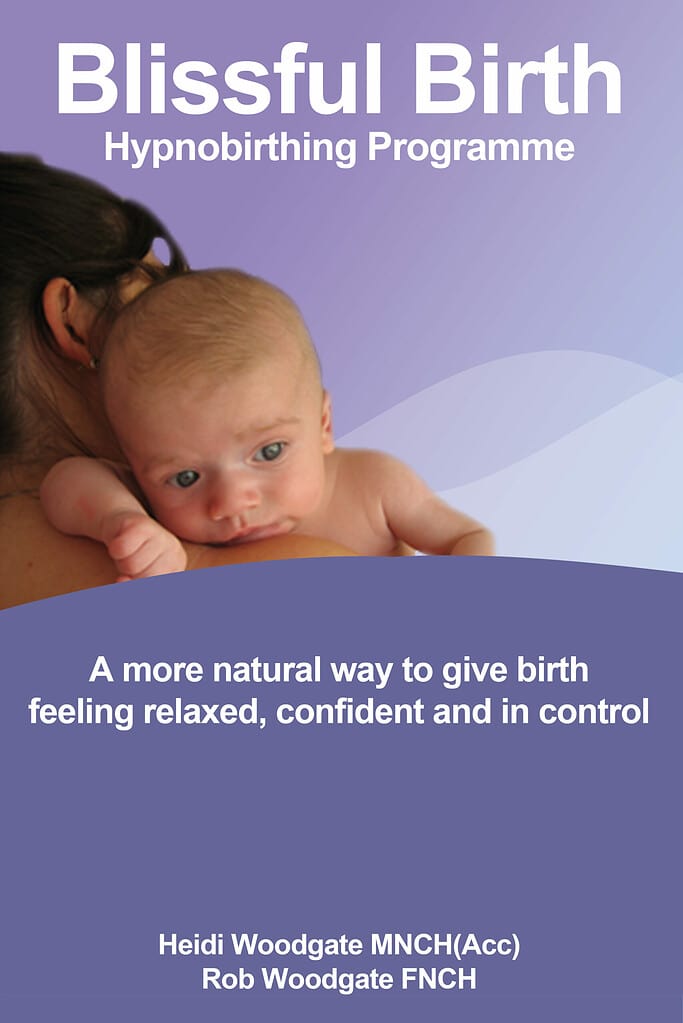When it comes to pregnancy, every bite matters. The joy of expecting a new life is often accompanied by a plethora of dietary dos and don’ts.
Salami, a beloved deli meat for many, suddenly becomes a topic of debate. Can you safely eat salami during pregnancy? Or should it be avoided altogether?
This article delves deep into the concerns, risks, and guidelines associated with eating salami during pregnancy.

Table of Contents
The Short Answer is…
It is recommended to avoid salami and other cold cured deli meats during pregnancy.
Cold cured meats, such as salami, pepperoni, chorizo and prosciutto are not cooked, so they may contain parasites that cause food poisoning, Listeria or toxoplasmosis. This elevates the risk of a miscarriage and birth defects.
The risks can be minimized by thorough heating to an internal temperature of 165°F (74°C) before consumption, but caution is advised.
What are Deli Meats?
Deli meats, often found in sandwiches, salads, and charcuterie boards, are pre-cooked or cured meat products that can be eaten without further cooking. They include a wide variety of products like ham, turkey, salami, bologna, and roast beef. These meats are popular for their convenience and taste. However, their processing and storage methods make them a topic of concern during pregnancy.
Salami, in particular, is a type of cured sausage that consists of fermented and air-dried meat. Originating from Italy, salami is known for its rich, savory flavor and is often enjoyed in sandwiches, pizzas, and as a standalone snack.
It’s made from beef, pork, or a combination of both, and contains a mix of seasoning, garlic, minced fat, and sometimes wine or vinegar. The curing process involves hanging the meat to dry for a duration that can range from a few weeks to several months. This method of preservation gives salami its distinct taste and texture.
However, the very process that gives salami its unique flavor is also the reason for concern. The curing and fermentation process, combined with the fact that salami is often consumed without being cooked, raises questions about its safety, especially for pregnant women. The primary concern revolves around the potential presence of harmful bacteria in these meats, which can pose significant risks during pregnancy.
Risks of Eating Salami During Pregnancy
Pregnancy is a delicate phase, where the immune system undergoes changes, making expecting mothers more vulnerable to certain infections. Deli meats, including salami, have been a point of contention due to the potential risks they pose.
Listeria Concerns
One of the primary concerns with consuming deli meats during pregnancy is the risk of Listeria monocytogenes, a bacterium that can cause a rare but serious infection called listeriosis.
Listeria is particularly worrisome for pregnant women because they are about 20 times more likely to get listeriosis than other healthy adults. While the overall incidence is low, the consequences can be severe. Listeriosis during pregnancy can lead to miscarriage, premature delivery, severe illness, or even the death of the newborn.
Deli meats, including salami, can become contaminated with Listeria during processing or packaging. The bacteria can thrive in refrigerated environments, making cold cuts a potential risk.
Toxoplasma Infection
Another potential risk is the Toxoplasma gondii parasite, which can cause toxoplasmosis. If a pregnant woman becomes infected, she might pass the infection to her fetus. Newborns with toxoplasmosis can have vision problems, hearing loss, and intellectual disabilities. Salami, if undercooked or contaminated, can be a source of this infection.
High Sodium and Preservatives
Salami and other deli meats often contain high levels of salt and preservatives like nitrates. High sodium intake during pregnancy can lead to increased blood pressure, which poses risks for both the mother and the baby.
Additionally, some studies suggest a potential link between nitrate consumption during pregnancy and certain birth defects, though the evidence is not conclusive.
Safe Consumption Practices
Given these risks, many health professionals advise pregnant women to exercise caution. If one chooses to consume salami or other deli meats, it’s crucial to heat them until they are steaming hot, which can kill harmful bacteria and parasites.
The American Pregnancy Association recommends heating deli meats to an internal temperature of 165°F (74°C) before consumption.
Precautions for Safe(r) Consumption
Navigating the dietary landscape during pregnancy can be challenging, especially with so many conflicting pieces of advice. However, when it comes to deli meats like salami, certain precautions can significantly reduce potential risks.
Heating is Essential
The simplest and most effective way to ensure the safety of deli meats is to heat them. Listeria and other harmful bacteria are killed at high temperatures. If you’re consuming salami, ensure it’s heated until it’s steaming or has reached an internal temperature of 165°F (74°C). Whether it’s in a sandwich, casserole, or on a pizza, make sure the salami is sizzling before consumption.
Avoid Cross-Contamination
When preparing meals, ensure that uncooked foods don’t come into contact with ready-to-eat foods. Use separate cutting boards for raw and cooked items and wash your hands thoroughly.
Check Expiry Dates
Always check the expiration dates on packaged deli meats. Consume or freeze them before the “use by” date. Once opened, consume deli meats within the time period stated on the packaging (usually two or three days).
Opt for Nitrate-Free Options
While the evidence on nitrates and pregnancy is not conclusive, it might be a good idea to opt for nitrate-free salami and other deli meats as a precautionary measure.
Stay Updated on Recalls
Occasionally, certain food products might be recalled due to contamination concerns. Stay updated on such recalls to ensure you’re not consuming potentially harmful products.
Consult Your Healthcare Provider
It’s always a good idea to discuss dietary concerns with your healthcare provider. They can offer guidance tailored to your specific situation and health history.
In conclusion, while there are risks associated with consuming salami during pregnancy, being informed and taking precautions can allow you to make safer dietary choices. It’s essential to weigh the benefits of satisfying a craving against the potential risks and make decisions that prioritize the health of both the mother and the baby.
What to Do if You’ve Consumed Salami While Pregnant?
First and foremost, don’t panic. If you’ve consumed salami or any other deli meat during pregnancy, the likelihood of encountering an issue is relatively low. However, it’s essential to be aware of potential symptoms and act promptly if they arise.
Monitor for Symptoms
If you start experiencing symptoms like fever, muscle aches, nausea, chills, or diarrhea, it could be indicative of listeriosis. These symptoms might appear a few hours after consumption or could take up to 30 days to manifest.
Consult a Healthcare Professional
If you suspect you might have consumed contaminated salami or are showing symptoms of an infection, consult your healthcare provider immediately. Early detection and treatment can prevent potential complications.
Stay Informed
Educate yourself about the risks associated with various foods during pregnancy. Knowledge is power, and being informed allows you to make safer dietary choices.
Trust Your Instincts
If something doesn’t feel right or if you’re unsure about a particular food item, it’s best to avoid it. It’s always better to err on the side of caution during pregnancy.
In conclusion, while salami and other deli meats come with their set of concerns during pregnancy, being informed, vigilant, and taking necessary precautions can help you navigate this period safely. Remember, every individual’s experience is unique, so always consult with your healthcare provider regarding any dietary concerns.
Alternatives and Safe Deli Meats
While the allure of salami and other deli meats can be hard to resist, especially during pregnancy-induced cravings, it’s essential to prioritize safety. Fortunately, there are several alternatives and safer deli meat options that pregnant women can consider.
Cooked Poultry
Turkey and chicken, when thoroughly cooked, can be a safe and delicious alternative. Opt for freshly cooked poultry instead of pre-packaged versions to minimize the risk of contamination.
Canned Meats
Canned tuna, salmon, or chicken are typically safe for pregnant women as the canning process kills harmful bacteria. However, it’s essential to limit the intake of certain fish like tuna due to concerns about mercury levels.
Homemade Roasts
Preparing roasts at home allows you to ensure they are cooked to a safe temperature. Roast beef, pork, or chicken can be cooked, sliced, and used in sandwiches or salads.
Vegetarian Alternatives
There are numerous vegetarian and vegan deli meat alternatives available in the market. These products mimic the taste and texture of meats and are typically made from soy, tofu, or other plant-based ingredients.
Conclusion
Pregnancy is a beautiful journey, filled with joy, anticipation, and, understandably, a fair share of concerns. Dietary restrictions and guidelines are among the many aspects expecting mothers grapple with. Salami and other deli meats, with their associated risks, often become a focal point of dietary discussions.
While there are genuine concerns associated with the consumption of these meats, being informed, taking precautions, and making conscious choices can significantly mitigate these risks. The key is to strike a balance between satisfying cravings and ensuring safety. By heating deli meats, being vigilant about symptoms, and exploring alternatives, pregnant women can navigate their dietary choices with confidence.
Remember, every individual’s journey is unique. It’s always advisable to consult with healthcare professionals regarding any dietary concerns or decisions. After all, both the mother’s and the baby’s well-being are of paramount importance.




